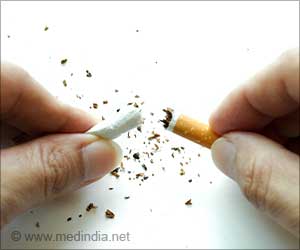Pills to block the stress receptor in the brain could effectively destroy the pleasure received by consuming alcohol.
Pills to block the stress receptor in the brain could effectively destroy the pleasure received by consuming alcohol.
Professor Tamara Phillips and colleagues from the Oregon Health and Science University report their study of the effects of the new drug on mice in a recent issue of the Proceedings of the National Academy of Sciences.“A common expression of neuroadaptations induced by repeated exposure to addictive drugs is a persistent sensitized behavioral response to their stimulant properties. Neuroplasticity underlying drug-induced sensitization has been proposed to explain compulsive drug pursuit and consumption characteristic of addiction. The hypothalamic-pituitary-adrenal (HPA) axis-activating neuropeptide, corticotropin-releasing factor (CRF), may be the keystone in drug-induced neuroadaptation. Corticosterone-activated glucocorticoid receptors (GRs) mediate the development of sensitization to ethanol (EtOH), implicating the HPA axis in this process….”
In layman’s language, liquor addiction could be put an end to by blocking the receptors that respond to ethanol.
Prof.Phillips and team hope the drug, which blocks a stress receptor, could not only stop alcoholics from relapsing, but also stop pleasurable feelings gained from cocaine and even food.
"This drug has great potential to treat not only alcoholism, but other stress-related disorders as well," she says.
The drug, called CP 154,526, was originally developed and donated for testing by drug giant Pfizer, maker of the popular drug Viagra.
Advertisement
The receptor blocks corticotrophin-releasing factor (CRF), a chemical released by alcohol that is thought to create pleasurable feelings.
Advertisement
In the study, the researchers gave the drug to mice that had been given a steady supply of alcohol.
Mice given the drug were less likely to gesture for another drink, compared to mice that didn't receive the drug.
The effect doesn't last long - less than an hour - but it doesn't have to, according to the scientists.
"The euphoria you experience with alcohol is extremely rapid and mostly happens within the first 15 to 30 minutes after your first drink," says Phillips.
"Without that initial euphoric reaction, you are less likely to have that second, third or fourth drink."
While the drug should prevent users from feeling happy from alcohol, it doesn't block the other effects of alcohol, such as the inability to walk in a straight line or slurred speech.
It also won't help with withdrawal symptoms or hangovers.
The researchers hope to enter human clinical trials in the next year.
If the drug is approved for human use, the patient would have to ingest the drug soon after or before their first drink for it to be effective.
CP 154,526 isn't the only drug that could help alcoholics stop drinking.
Naltroxone, which affects opioid receptors, is often effectively used in combination with counselling to stop relapse, but for some people it has little or no effect, Eric Bland says, reporting for Discovery News.
Phillips and her collaborators are testing their drug specifically for treating alcoholism, but she says that since CP 154,526 binds to a receptor involved in stress and anxiety more generally, it could help treat a number of overly-pleasurable pursuits.
That view is backed up by Dr George Koob, a scientist at the Scripps Research Institute in La Jolla, California, who also studies CP 154,526 but was not involved in Phillips' study.
"CRF antagonists [like CP 154,526] could help re-establish homeostasis involved with hedonic disregulation," says Koob. "This drug could be of use in many different situations."
Other studies have shown that CRF helps regulate the pleasurable effects of nicotine, heroin and cocaine, says Koob.
Source-Medindia
GPL/S












